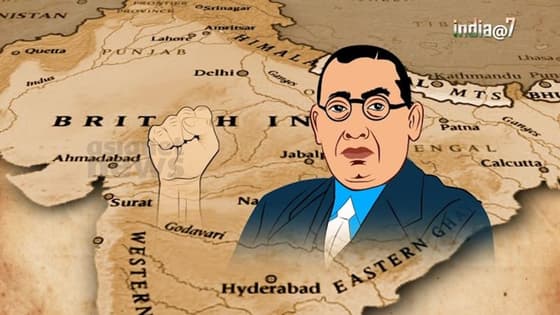
India@75: Story of Rash Behari Bose, who handed over the reins of INA to Netaji
It is well known that Netaji Subhas Chandra Bose was the heart and soul of the Indian National Army. But it was another Bose from Bengal who handed over the reins of INA to Netaji. Rash Behari Bose.
It is well known that Netaji Subhas Chandra Bose was the heart and soul of the Indian National Army. But it was another Bose from Bengal who handed over the reins of INA to Netaji. Rash Behari Bose.

Bose was born in Calcutta in 1886. Having witnessed in horror the gross callousness of British authorities, which resulted in the miseries wreaked by famines and pandemics, Bose hated the British from childhood. This also made him an admirer of the revolutionaries of Bengal, who believed in the violent overthrow of foreign rule.
Also watch: India@75: Aruna Asaf Ali, the queen of the August revolution
He was also a brilliant student who had the extraordinary achievement of having taken degrees in medicine and engineering from France and Germany, respectively.
But Bose could have easily gone for a cosy and luxurious life. Instead, he chose the difficult path of the revolutionary freedom fighter. He allied with the Bengali revolutionaries and the organisation Jugantar. He was also behind the failed yet sensational assassination attempt against Governor-General Lord Hardinge at Delhi on 23 December 1912.
Bose was also at the forefront of the thwarted Gaddar mutiny of 1915 inside the British Indian Army by the Indian soldiers. The North America-based Gaddar Party organised the mutiny.
Following the failed uprising, nationalists were rounded up in large numbers. They were tried in the first Lahore Conspiracy Case, and as many as 42 were executed. Before getting caught, Bose escaped to Japan in 1915 on the advice of Lala Lajpat Rai.
Also watch: India@75: Shyamji Krishna Varma, the illustrious expatriate who fought for freedom
Bose spent the rest of his life organising Japan’s support for India’s freedom struggle. He formed the India Independence League to work in various South East Asian countries to campaign for an Asian resistance movement against the British. He also helped with the Japanese army’s support of the formation of the Indian National Army, consisting of Indian soldiers in the British Army held by Japan during the II WW.
In 1943 Bose invited Subhas Bose to Tokyo and handed over the leadership of the INA. Bose married a Japanese lady, became a citizen and won the second-highest civilian award. He died in Tokyo in 1945, a year after he won Japan’s high civilian honour, The 2nd Order of the Rising Sun.
Also watch: India@75: Birsa Munda, the tribal leader behind Munda revolt